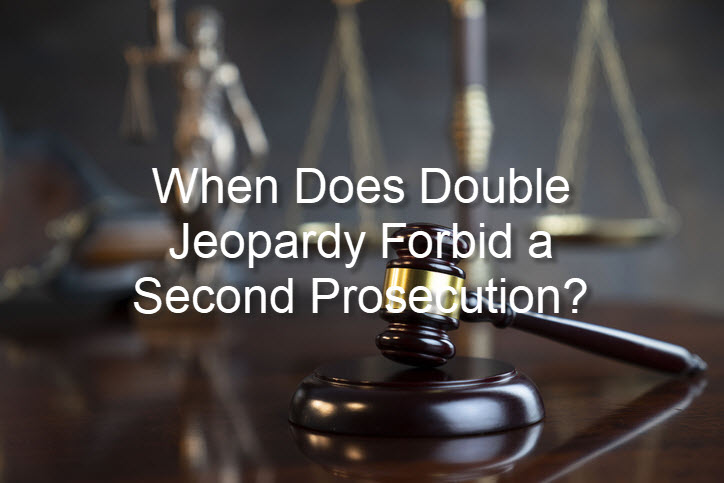When Does Double Jeopardy Forbid a Second Prosecution?

The concept of double jeopardy seems simple on the surface: a person cannot be prosecuted more than once for the same crime. But the word “same” is not as simple as it sounds. There are significant gray areas, particularly when a person is accused of violating different statutes that on their faces are similar to each other.
The term “jeopardy” means being at risk of criminal prosecution. The double jeopardy clause of the Fifth Amendment of the U.S. Constitution prevents the government from trying or punishing someone more than once for the same crime in the following circumstances:
- After he or she was already acquitted on that charge
- After he or she was convicted of that charge
However, a person is not protected from a second prosecution in situations such as the following:
- When the first case ends in a hung jury
- When there is a mistrial
- When the prosecutor drops the original charges and refiles them later
But whether a second prosecution is for the “same” crime can sometimes require an exacting analysis. As in most states, New Jersey courts use what is known as the “same elements test.” When a person is charged with violating multiple statutes, the court must examine each charged offense to determine whether the statutory elements are different enough to amount to separate crimes. If the elements of the statutes are too similar, then the constitutional protection against double jeopardy takes hold.
Double jeopardy only applies to criminal cases. It is perfectly legal for someone to be prosecuted for a crime and then later to be sued in civil court by the victim. A defendant might also suffer administrative punishments in addition to criminal punishments. One example is a conviction of DUI followed by a driver’s license suspension.
Additionally, a person can be prosecuted for the same offense in both state and federal court. This is because state governments and the federal government are considered separate “sovereigns,” or independent entities. For example, a person may be acquitted of assault and battery in state court and then prosecuted in federal court for violation of the victim’s civil rights by the same conduct, as happened in the 1993 Rodney King police brutality case.
Double jeopardy is an intricate legal concept. If you are charged with a crime and believe you should be protected from double jeopardy, make sure you hire an experienced New Jersey criminal defense lawyer that understands the nuances.
At the Law Offices of David Jay Glassman, we have decades of experience defending clients and we fully understand all the rules related to double jeopardy. If you should be protected by it, we’ll present the argument forcefully. Call 866-221-1270 or contact us online 24 hours a day to speak to our attorney. We can meet you at our offices in Marlton, Hackensack, Newark or New Brunswick, or we can meet over video conference.
